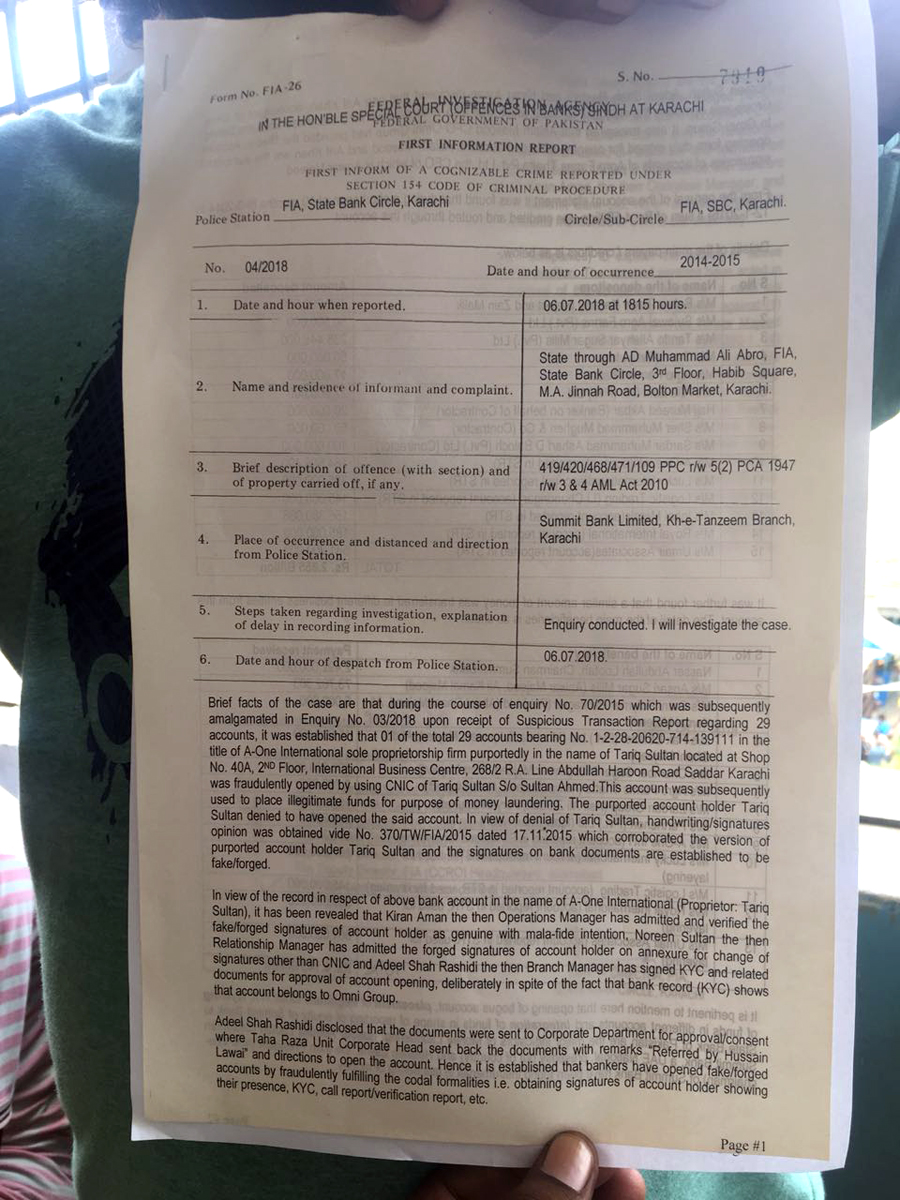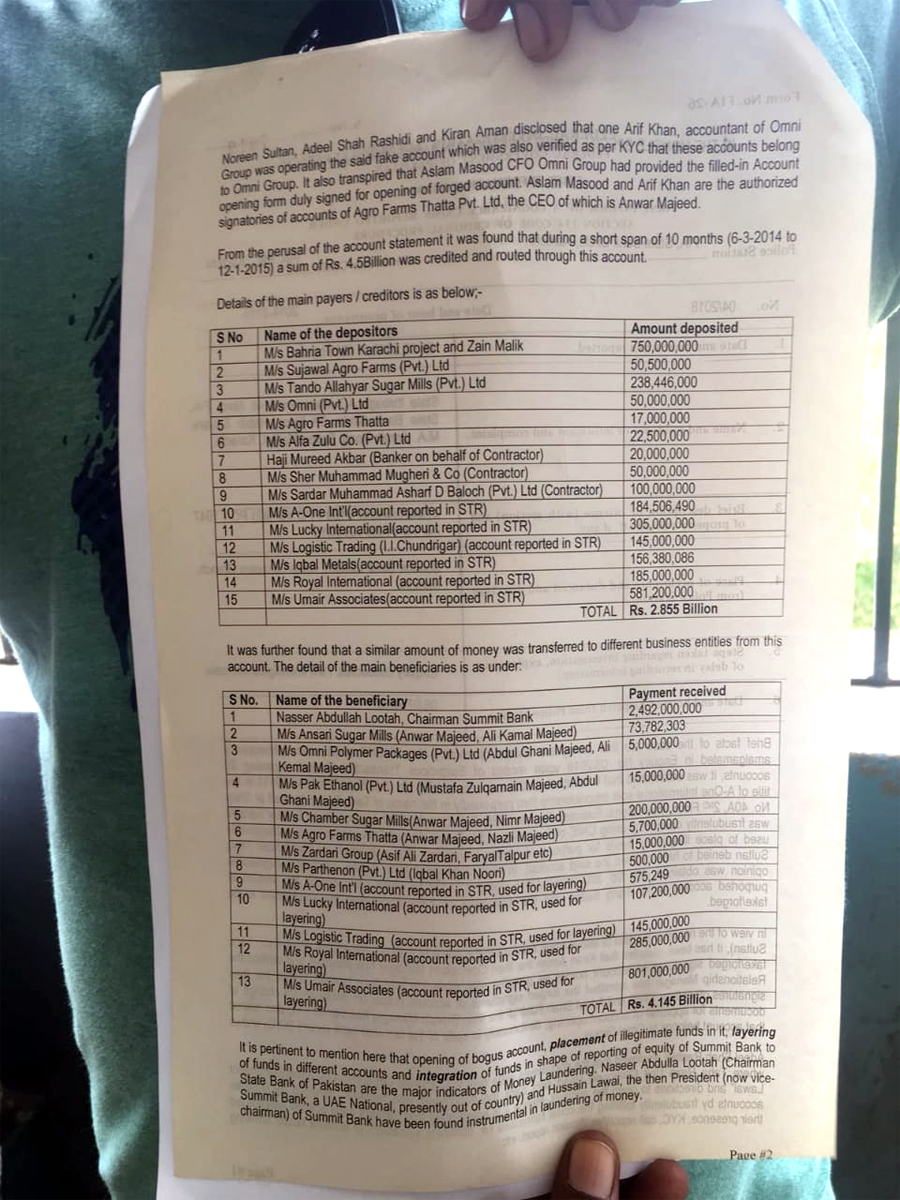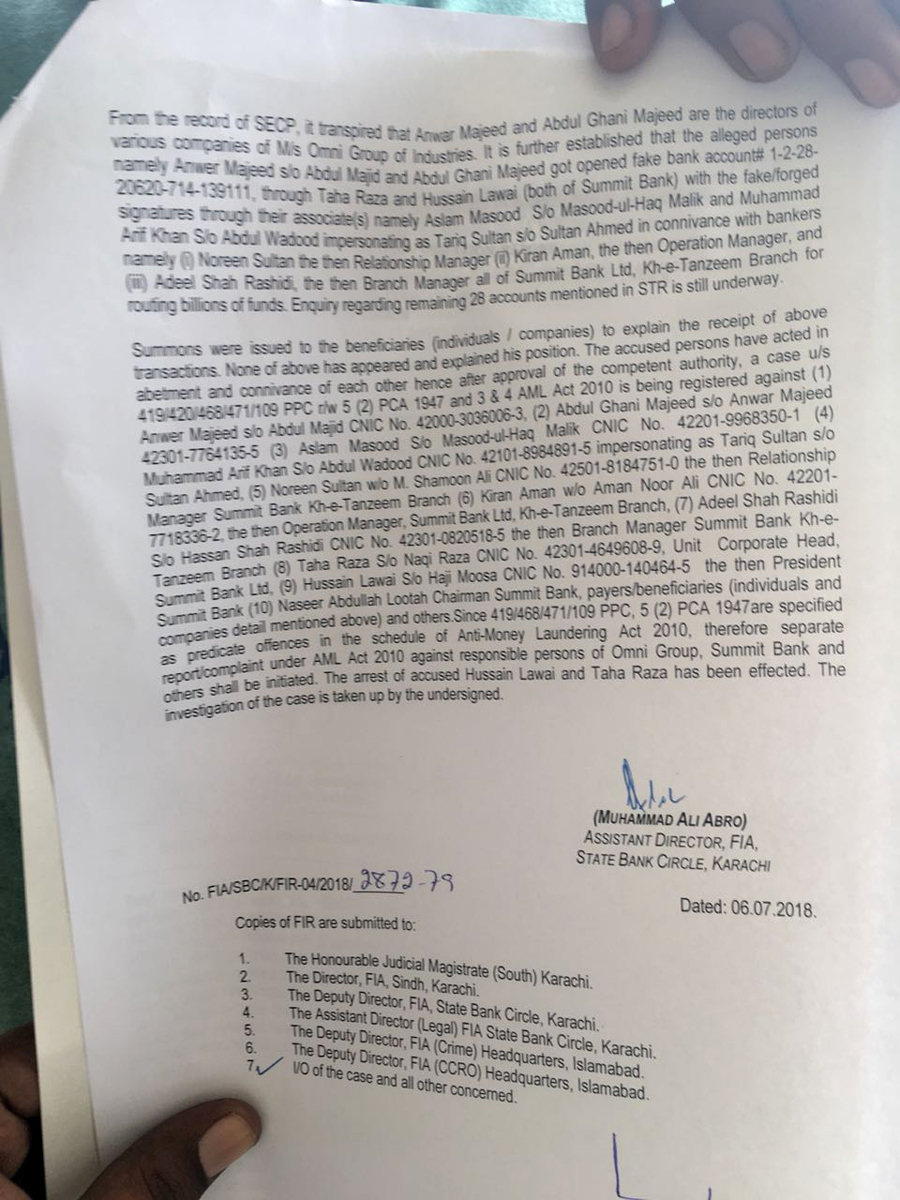KARACHI: The Federal Investigation Agency (FIA) on Saturday obtained the remand of Hussain Lawai, Chairman Central Depository Company (CDC) and a close aide of Pakistan’s former president, Asif Ali Zardari, after registering a case against him and others for using a fake account to launder Rs35 billion ($288 million).
According to a case registered by FIA’s Banking Circle Karachi, the former president and leader of the Pakistan People’s Party, Asif Ali Zardari, and his sister, Faryal Talpur, are among 13 people who benefited from the arrangement.
The police first investigation report (FIR) says that M/S Zardari Group (Asif Ali Zardari, Faryal Talpur, etc) got Rs15,000,000 and were among the beneficiaries of the transaction trail of fake bank accounts maintained by Omni Group, owned by Anwar Majeed, another close aide of the former president.
Different entities owned by Majeed can be found in the list of depositors and beneficiaries of the fake bank account maintained in the name of a citizen without his approval.
The FIR found that one of the depositors in the fake account turned out to be M/S Bahria Town Karachi project and Zain Malik, who had deposited Rs750,000,000. Both Malik and the spokesperson of his Bahria Town Karachi project did not respond to Arab News’ requests for a comment.
Muhammad Ali Abro, assistant director of FIA’s Karachi Banking Circle, informed the local magistrate that during the inquiry into the suspicious transaction of 29 accounts, it was established that one of them was fraudulently opened in the name of Tariq Sultan by using his national identity card.
“This account was subsequently used to place illegitimate funds for purposes of money-laundering,” reads the FIR, a copy of which is available with Arab News.
According to the FIA, when Sultan denied he had opened the account, the agency started conducting its inquiry and the signatures on bank documents were found to be forged.
The FIA obtained the money trail and interviewed those involving the opening of a fake account, leading the agency to conclude that Hussain Lawai, the then chairman of Summit Bank, had ordered the opening of the fake account for money-laundering purposes. According to the agency, the investigation of another 28 accounts is under way.
Pleading not guilty out of the court of the local magistrate, Lawai told the media he did not know if he was arrested because of Asif Ali Zardari. “Only time will tell why I have been targeted,” he said.
An FIA spokesperson told Arab News that the offense had occurred between 2014 and 2015. However, the Pakistan People’s Party and independent analysts have been questioning the timings of the investigation and arrest for different reasons.
“Asif Ali Zardari has also been maligned in the past. I am really not surprised to see his name in the FIR,” Farhatullah Babar, former president’s spokesperson, told Arab News.
“To me, this seems to be part of pre-polls rigging. Zardari spent 11 years in jail without conviction. The present bubble will also burst into nothingness,” he added.
Senior analyst Mazhar Abbas claimed the appearance of Zardari’s name in the money-laundering case seemed to be an effort to dispel the impression that federal institutions such as the National Accountability Bureau (NAB) and Federal Investigation Agency (FIA), had only singled out the former prime minister, Nawaz Sharif.
“In the foreseeable future, we may also see action against the former president-general, Pervez Musharraf,” Abbas told Arab News.
Fazil Jamili, another Karachi-based political analyst, maintained that the FIR was part of the establishment’s minus-one formula, which, he said, was being applied to all major political parties. “After minus-Altaf and minus-Nawaz, it seems to be Asif Ali Zardari’s turn,” he said.
He added: “This is a significant development and may produce negative election results for PPP since it is likely to damage the party’s credibility.”
As the situation stands, the former president’s son, Bilawal Bhutto-Zardari, is running his party’s election campaign and addressing public rallies in the provinces of Sindh and Punjab.

Copy of the FIR by the Federal Investigation Agency that names Pakistan’s former president, Asif Ali Zardari, and his sister in a fake account to launder Rs35 billion.

Copy of the FIR by the Federal Investigation Agency that names Pakistan’s former president, Asif Ali Zardari, and his sister in a fake account to launder Rs35 billion.

Copy of the FIR by the Federal Investigation Agency that names Pakistan’s former president, Asif Ali Zardari, and his sister in a fake account to launder Rs35 billion.



























